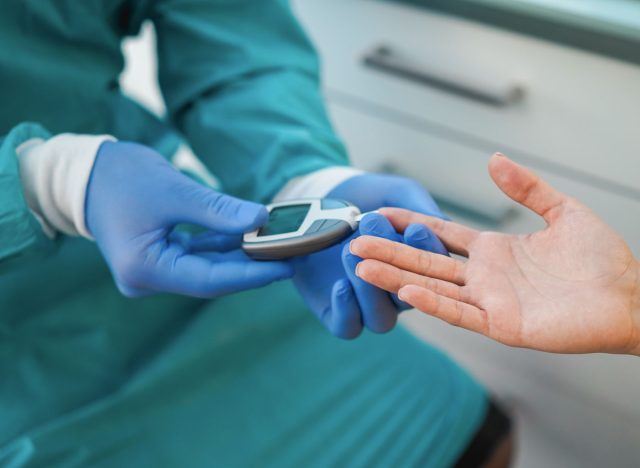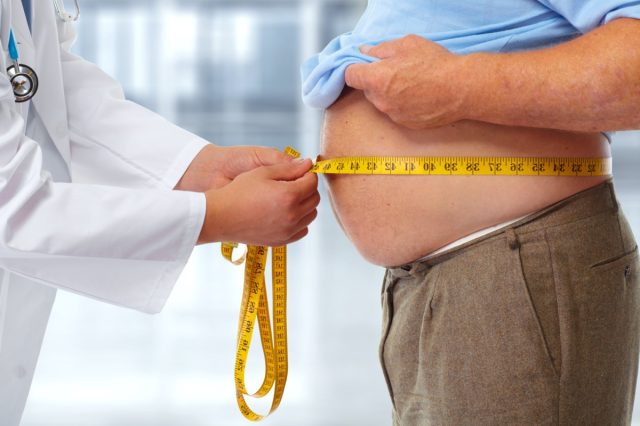Whether you're headed to the bar after a long week at work or just want to pop open a bottle on a hot day, beer is an integral part of many people's regular routine. In fact, according to Beer Info, the average adult in the United States ages 21 and older consumes around 28.2 gallons per year. However, beer isn't for everyone—and it's not just those who don't like the taste who should pass up that bottle. Read on to discover six types of people who should never drink beer, according to a doctor.
People with a history of diabetes or prediabetes

When it comes to popping open a bottle of beer, one rarely ever considers the sugar content. While the ingredient list doesn't always list sugar as an ingredient, it is created naturally when the grains are fermented by yeast.
"Beer can rapidly induce an increase in patient blood sugar or in a fasting state can cause a rapid rise in insulin and can cause hypoglycemia which is also dangerous," says Dr. Jonathon Kung, MD, a gastroenterologist at Mount Sinai.
People trying to lose weight or who are overweight

If you're looking to shed a few pounds, you may want to stay away from this popular alcoholic beverage. "Beer is loaded with anywhere from 100 to 200 calories with little nutritional value," says Kung.
According to research published in Nutrients, daily amounts of beer greater than or equal to 500 milliliters—that is, about 16.9 ounces—increase the risk of not losing weight, particularly in men. For those trying to lose weight, beer consumption can prevent one from reaching a daily calorie deficit necessary for weight loss. Swap out the bottle of beer for a bottle of water to save those empty calories.
People with known gluten sensitivity or a history of celiac disease

Those who follow gluten-free diets should try to avoid drinking beer as it may contribute to future digestive problems. "Beer often contains gluten which can trigger an inflammatory response in the gut of many patients resulting in gastrointestinal symptoms," says Kung. There are gluten-free beers out there that may be better for those with food sensitivities.
People with a history of irritable bowel syndrome (IBS)

Stomach issues aren't fun for anyone, especially those with irritable bowel syndrome. "Beer often causes bloating, gas, diarrhea, and sometimes abdominal pain by irritating the wall of the gut or causing fluid retention in some patients," says Kung.
People with a history of chronic liver disease or cirrhosis

While drinking beer might sound like a good idea after a long week, if you have liver disease or cirrhosis, you're going to want to stay away. "Beer is alcohol which when metabolized by an already irritated liver (often in the setting of cirrhosis, viral hepatitis, or autoimmune disease), can further hasten damage to the parenchyma of the liver and ultimately can result in a decline in liver function," says Kung.
Patient's with a history of heartburn

You might know to avoid foods that are acidic or high and fat when it comes to preventing heartburn, but beer should also be added to that list according to Kung. "Beer is known to weaken the closing ability of the lower esophageal sphincter (which separates the stomach from the esophagus), resulting in more acid reversing into the esophagus resulting in heartburn symptoms."
No comments:
Post a Comment